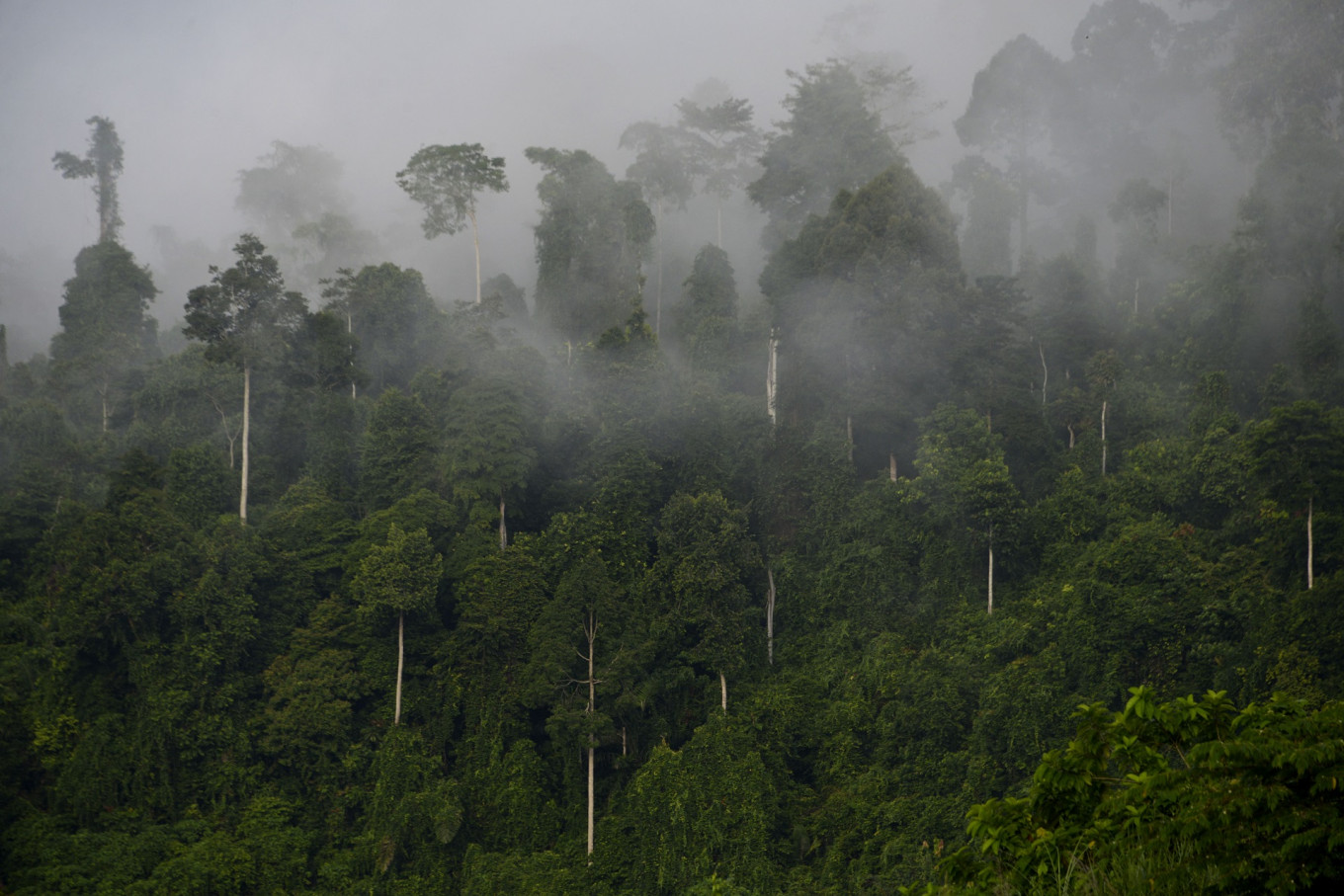Road to changes from Bali to Glasgow
The frequent criticism of our efforts to lower deforestation and improve forest management is often that progress is not quick enough, or that our implementation is too slow.
Change text size
Gift Premium Articles
to Anyone

A
bout 13 years ago, Indonesia changed its path on deforestation; this year we are seeing the results. When in 2008 Indonesia hosted the 13th UNFCCC Conference of the Parties (COP) in Bali, the world’s eyes were glued to the country as it emerged from a destructive haze event the year before.
There were expectations that the Bali event would be the “Forest COP”. That year Indonesia delivered. We did so in the form of the Bali Road Map, which laid the foundations for agreements reached two years later in Copenhagen, and eight years later in Paris. But, most importantly, our conference cemented the UNFCCC’s consideration of forests, to include reducing emissions from deforestation and forest degradation – known as REDD – into the conventional wisdom on climate change.
Doubts lingered around Indonesia’s ability to deliver on the ambition of the Bali conference. Indonesia was plagued by rampant illegal logging. The deforestation rate was high and our forest policy lacked coherence despite reformasi. Importantly, much was still misunderstood about the underlying causes of deforestation in Indonesia. Many had assumed that it was only about selling – and smuggling – timber.
The truth was much more complex. Indonesia’s rural population was growing at a phenomenal rate and the country’s relatively new governance structures were simply unable to keep up with the rapidly changing demographics and high levels of rural poverty. As a consequence, rural areas were being deforested: to grow crops and support livelihoods.
Our country was facing a dilemma: how to reduce the deforestation rate and maintain economic growth. Indonesia exercised patience. It is sometimes said in Indonesia that patience is not being passive; it is an endeavour. Indonesians exercise patience to actively make our way through the trials of living in the archipelago, from earthquakes and volcanoes to droughts and pandemics.
This is not well understood by those living outside of Indonesia. In the West, patience is a virtue, but this implies waiting, not working toward something better. The frequent criticism of our efforts to lower deforestation and improve forest management is often that progress is not quick enough, or that our implementation is too slow.
But the progress has been made and the implementation has taken place. Indonesia can and should be proud of the following core achievements since 2007. First, Indonesia famously was the first country to sign on to a REDD payment agreement with Norway, which promised financial incentives to reduce deforestation.
Second, Indonesia completed the first Voluntary Partnership Agreement (VPA) with the European Union for its timber exports. The VPA and its legal verification system has effectively halted widespread illegal timber exports from Indonesia.
Third, Indonesia developed and completed the Indonesia Forest Certification Cooperation (IFCC) system for sustainable forest management, which brought Indonesia’s forest management to a sustainable standard recognized in markets around the world.
Fourth, Indonesia introduced the world’s first national standard for sustainable palm oil, Indonesia Sustainable Palm Oil (ISPO). More recently, ISPO has been revised and given additional weight by President Joko “Jokowi” Widodo, bringing Indonesia’s palm oil sector – often considered one main cause of deforestation in Indonesia – into a new era of sustainable palm oil production and forest management.
Fifth, and most importantly, successive presidents have introduced and maintained moratoria to protect peatlands and primary forests.
These patient endeavours undertaken by Indonesia over 13 years have added up: Indonesia has recorded its lowest deforestation on record. At the upcoming COP in Glasgow, Indonesia will cochair the Forest, Agriculture and Commodity Trade (FACT) Dialogue with the United Kingdom. The dialogue is there to develop a consensus among nations on a plan of action that both protects forests and livelihoods, that delivers sustainable land use and promotes trade and development. Indonesia brings to the table a wealth of experience, incorporating both successes and failures.
Indonesia’s detractors will attempt to portray our palm oil sector – which supports more than 2.7 million small farmers – as a pariah. They will attempt to portray Indonesia’s government as weak and ineffective.
Many Western countries will attempt to argue from a position of environmental superiority, and that their lack of recent deforestation gives them the moral high ground on deforestation. But it is time that other countries listen, and closely, to countries like Indonesia, Malaysia, Vietnam and Thailand, all of which have reduced their levels of deforestation over recent decades.
There is no magical solution for developing nations to reduce their deforestation. But from Indonesia’s experience there are two keys.
First is that the desire to change needs to come from within; it cannot be imposed externally. Second, patience is essential. This does not mean waiting for something to change; it means working toward that change.
This is truly a work in progress but this year we can at last see things changing.
***
Musdalifah Mahmud is the undersecretary to coordinating economic minister for food and agribusiness. Fadhil Hasan is a senior economist at the Institute for Development of Economics and Finance (INDEF).









